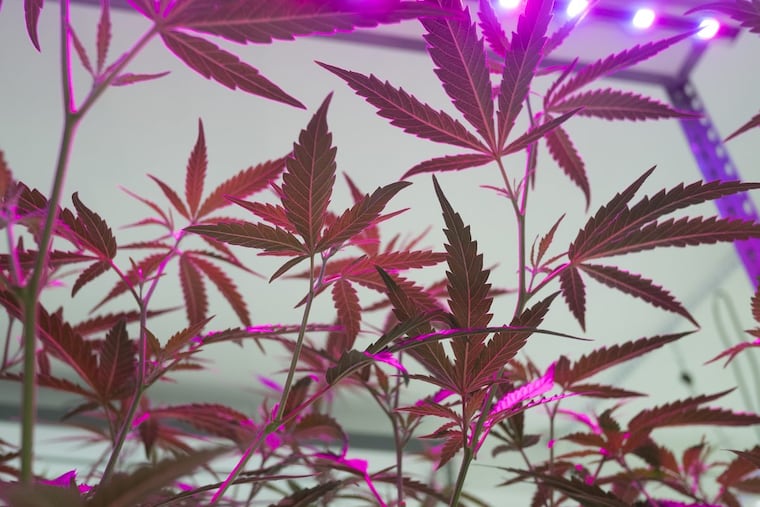Pennsylvania cracks down on Big Marijuana, threatens to shut out biggest permit holder
The action was prompted by what officials called “blatant misrepresentation” in a statement issued by Harvest Health & Recreation, which announced Tuesday that it is acquiring a Pennsylvania weed company.

In an unprecedented move, Pennsylvania on Wednesday threatened to revoke the permits of a Phoenix-based company that holds the rights to open the most medical marijuana dispensaries in the Keystone State.
The action was prompted by what officials called “blatant misrepresentation” in a statement issued by Harvest Health & Recreation, which announced Tuesday that it is acquiring a Pennsylvania weed company.
Harvest claimed that its multimillion dollar deal to acquire CannaPharmacy would make it one of the biggest marijuana companies in the nation. As part of the deal, Harvest said it would gain ownership of a marijuana growing operation in Reading. In addition, the company claimed it owned rights to open a total of 21 retail marijuana dispensaries.
That contradicts the state medical marijuana law, which caps the number of dispensaries a company may operate at 15 and prohibits transfer of permits.
The state’s warning shot offers a window into a larger problem that regulators, including in Massachusetts, are grappling with: big businesses trying to take advantage of legal loopholes, often effectively shutting smaller entrepreneurs out of a lucrative but nascent industry.
It was the first time state regulators had heard of CannaPharmacy, which cast itself as the parent of Franklin Labs LLC.
Pennsylvania regulators, however, are very familiar with Franklin Labs, which holds a permit to grow cannabis in a former Pepsi warehouse near Reading. Though the politically well-connected company (it’s chairman is former Gov. Tom Wolf adviser John Hanger) was deemed operational more than a year ago, it has yet to provide a single gram of marijuana to any medical marijuana dispensary in Pennsylvania.
On Wednesday, the state’s Department of Health fired off a sternly worded letter at Harvest, calling its claims of a massive Pennsylvania footprint "a blatant misrepresentation.” And, the health department stated that Franklin Labs’ grow permit is “nontransferable under Section 603(B) of the Medical Marijuana Act.”
Harvest said it “is fully committed to always operating within state guidelines and working closely with Pennsylvania’s Department of Health on their medical cannabis program.”
Even if the state does allow Harvest to acquire Franklin Labs, the state’s letter said, “Franklin Labs will retain ownership of the permit and Harvest Health & Recreation Inc. may not represent that it owns the permit issued to Franklin Labs LLC.”
Harvest (OTC: HRVSF) also claimed to own permits that would allow it to open 21 retail dispensaries. The Department of Health said that was not true. In its rebuke to the company’s CEO, Steve White, the health department said Harvest “did not apply for, or receive, any permits in Pennsylvania.”
Which is technically correct.
That’s because Harvest won more permits to sell marijuana than Pennsylvania allows, by using multiple affiliates to apply and receive permits in the state.
Under state regulations, a company may own only five. Each of the permits allows for three marijuana dispensaries. So, instead of applying as Harvest Health & Recreation, the company applied as seven limited liability companies. Each of its seven applications was a winner.
“Because each business is recognized as a separate legal entity under law, the department expects each to operate as independent entities as represented in the permit applications,” said the letter, signed by John Collins, the director of the state’s medical marijuana program.
“Any continued misrepresentation that these entities are one and the same will be construed as a falsification of the permit applications and will result in the office taking action against each entity, including possible revocation of permits.”